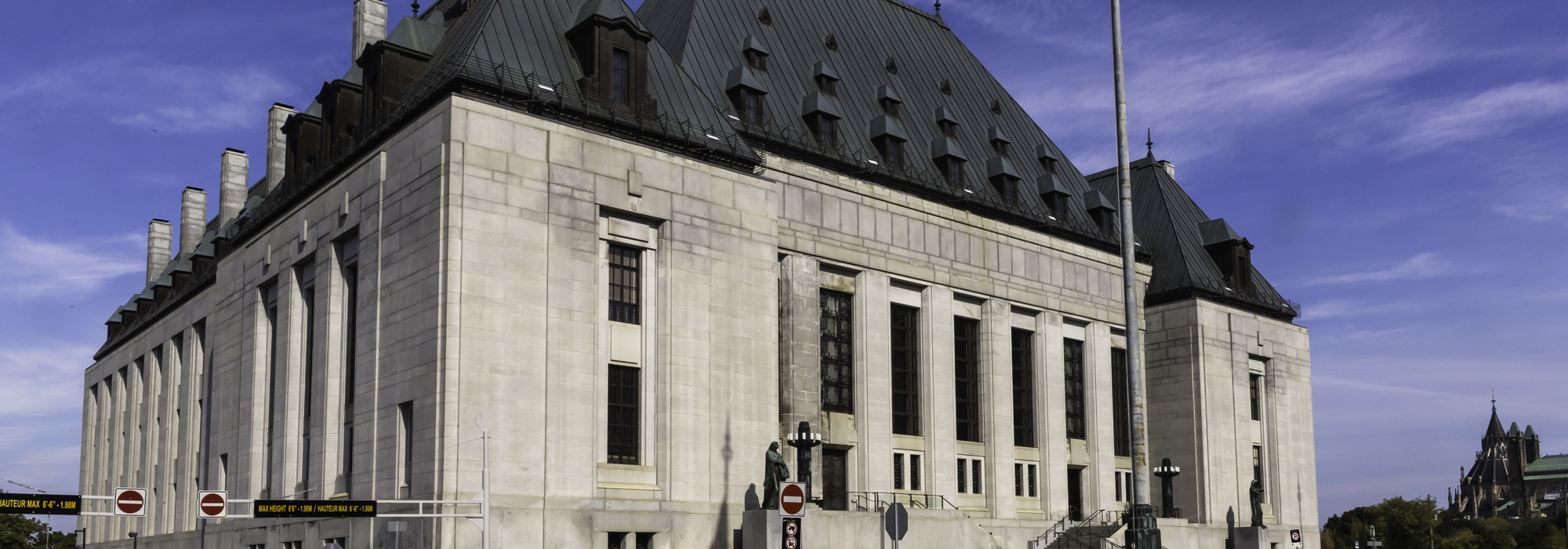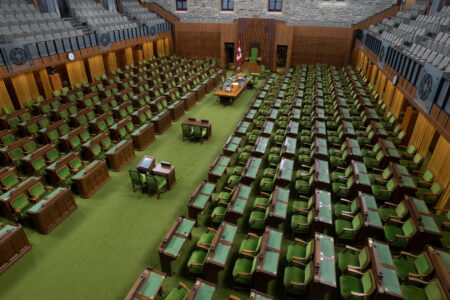
Prime Minister Stephen Harper’s appointment of seven of the Supreme Court’s nine judges has done his government little good. The high profile clashes between the “Harper Court” and the Harper government are the stuff of legend. But not to worry, the real action has reportedly occurred behind the scenes with the appointment of lower court judges. Roughly three-quarters of federally appointed trial and appeal court judges owe their positions to Harper’s government, and they might promote his conservative agenda in ways that the Supreme Court has not. These lower court appointments, we are told, “are Mr. Harper’s enduring legacy.”
Trial judges play a particularly important role by authoritatively ruling on the “social” or “legislative” facts that decisively shape constitutional rulings. Such facts are distinguished by the literature — and by the Supreme Court — from “adjudicative facts.” Adjudicative facts concern the particular circumstances of the parties before the court. Did the accused pull the trigger or was it someone else? Was the woman having an innocent conversation or soliciting for the purposes of prostitution? Did the physician intend to euthanize the patient or did he simply provide palliative comfort (which might have hastened death, but was not designed for that purpose)? In short, adjudicative facts answer the questions of « who did what, where, when, how, and with what motive or intent« ?
The questions change when the law itself is on trial for constitutional infirmity. For example, do traditional prostitution laws justifiably limit the Charter rights of “liberty” and “security of the person”? Do they mitigate or exacerbate the dangers associated with prostitution? The answers to such constitutional questions depend on “social facts” that significantly transcend the particular circumstances of the case being tried.
Adjudicative facts are generally settled by trial courts, where judges (and sometimes juries) can directly assess the credibility of live testimony. Appeal courts, operating at a greater distance, concern themselves with legal errors; they rarely contest the adjudicative facts established at trial. This « privileged position of the trial judge to appreciate and weigh adjudicative facts » did not « extend to the assessment of ‘social’ or ‘legislative’ facts that arise in the law-making process,” said the Supreme Court in 1995. Indeed, the social-fact findings of trial judges were “entitled to minimal deference.” The Court has changed its mind on this issue, however, declaring in Bedford (2013) that « a no-deference standard of appellate review for social and legislative facts should be rejected.” Trial-court « findings of fact — whether adjudicative, social, or legislative » — now receive equally high deference and are subject to appellate review only for « palpable and overriding error.”
The Bedford judgment didn’t just give trial judges enhanced authority over social facts; it also allowed them to use these facts to alter precedents established by appeal courts, including the Supreme Court of Canada. Previously, trial courts could reconsider only the rare higher court judgments that were per incuriam — i.e., that unknowingly failed to consider a legally binding authority. Now, they can revisit precedents when there is “a change in the circumstances or evidence that fundamentally shifts the parameters of the debate.” New social-fact evidence of this kind led the trial judge in Bedford to invalidate prostitution laws that the Supreme Court had upheld two decades earlier, an outcome confirmed by the Supreme Court. In Carter (2015), the Supreme Court similarly deferred to a trial court reversal of the 1993 Rodriguez decision on assisted suicide. Again, new social-fact findings by the trial judge played a critical role.
Bedford and Carter are famously part of the Harper government’s losing streak before the Supreme Court, but might they ironically contain a conservative silver lining? After all, the newfound powers of trial judges are available not just to the kind of non-Harper appointees that presided over the Bedford and Carter trials, but also to all of Harper’s trial-court appointments. Will we see the new cohort of trial judges shaping legislative and social facts to achieve conservative ends in constitutional litigation? It has been suggested, for example, that a lone conservative judge could significantly affect the outcome of an upcoming case challenging the public medicare system.
Because constitutional aspects of the health care debate remain judicially undecided, the policy inclinations of a trial judge may indeed have an effect. But what about the many constitutional issues that have been more clearly settled by the Supreme Court? Will conservative trial judges seek to alter established liberal precedents? Perhaps, but there are multiple “conservatisms” in this context, and one of them worries that a flood of reconsideration cases will damage the order and stability embodied in the principle of stare decisis (the rule of precedent). This is the position of Russell Brown, Harper’s latest (and obviously fast-tracked) appointment to the Supreme Court.
Justice Brown addressed the new reconsideration powers in an Alberta Court of Appeal judgment in early 2015, not long before his Supreme Court appointment. Accepting that “Bedford represents a significant new exception to stare decisis,” Brown maintained that this exception “should be invoked with…restraint.” It should not “be taken either as a declaration of open season on stare decisis, or as positing that the vast majority of Charter issues which have been settled by higher courts, and especially by the Supreme Court, are no longer settled.” To the contrary, lower courts should “take Bedford’s stated threshold seriously by applying it strictly,” that is by respecting the Supreme Court’s own admonition that the threshold for reconsideration is “not an easy one to reach.” On this standard, it is not enough to assert that social and legislative facts are “different now.” Instead, the new circumstances must clearly invalidate the “starting premise” of the challenged precedent.
As legal scholar Dwight Newman put it, the “Supreme Court of Canada’s seeming invitation to the lower courts to engage in anticipatory overruling had opened an enormous Pandora’s box, and Justice Brown has started to find a way to control the potentially ensuing problems that the Supreme Court’s slimly articulated approach would otherwise cause.”
Of course, Justice Brown’s proposed constraints on reconsideration apply to all trial judges, including those appointed by the Harper government. Ironically, those who fret about Harper’s trial-court appointments can take some comfort from his appointment of Justice Brown to the Supreme Court.






